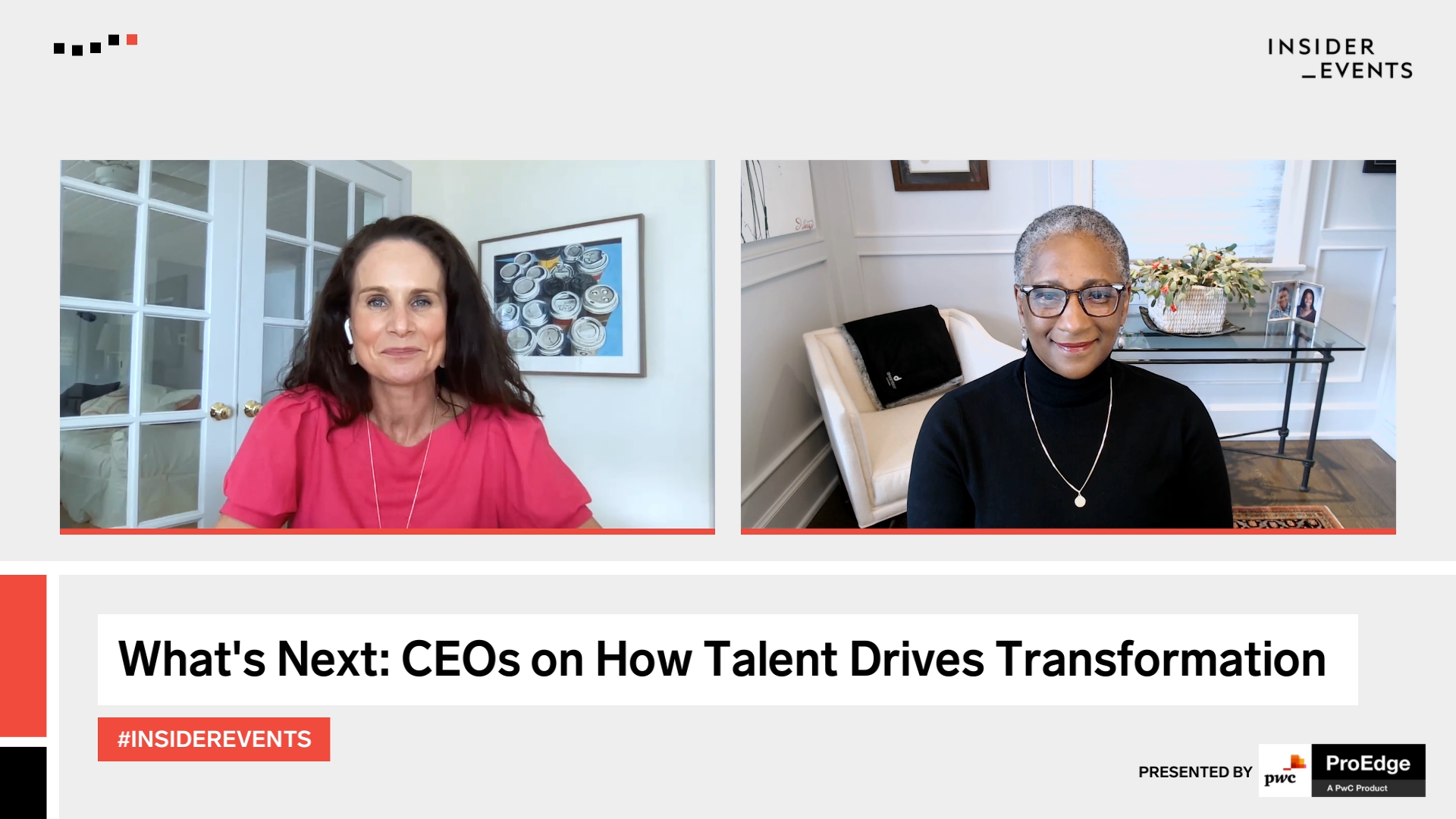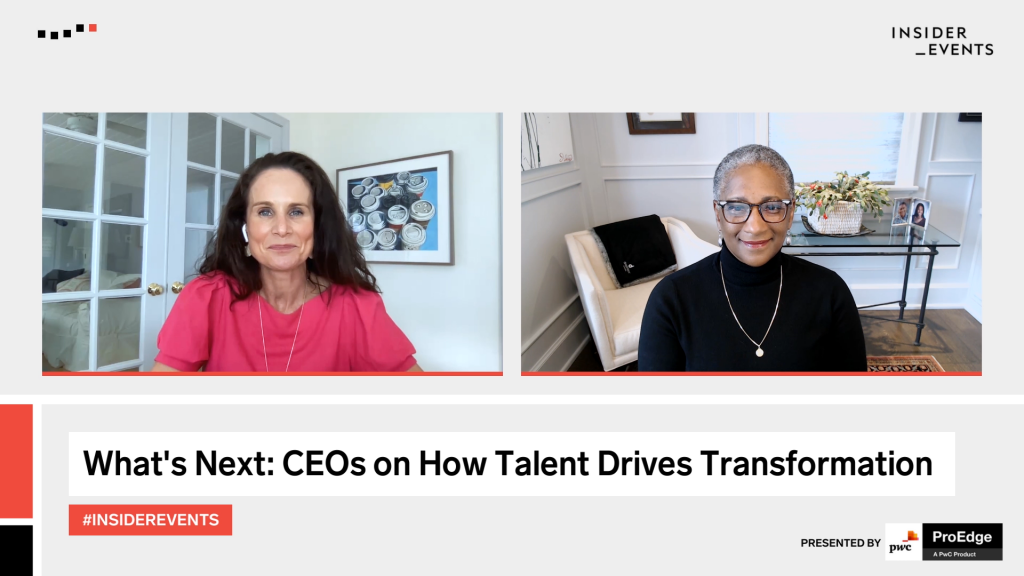
Insider Events
- DreamBox CEO Jessie Woolley-Wilson says diversity should be leveraged for success.
- Employers must understand what workers want and need, as they now have the upper hand.
- This was part of Insider's event "What's next: CEOs on How Talent Drives Transformation," presented by ProEdge, a PwC Product, on June 29.
- Click here to watch a recording of the full event.
There's a wealth of evidence that suggests diverse, equal, and inclusive workplaces are more successful – but the pandemic and death of George Floyd forced leaders to truly reckon with this reality.
"Instead of focusing on how to manage diversity, we need to pivot to focus on how to leverage diversity," Jessie Woolley-Wilson, CEO of educational-software firm DreamBox, said during Insider's recent virtual event "What's next: CEOs on How Talent Drives Transformation" presented by ProEdge from PwC, which took place June 29. "If you really believe that diversity is something to be leveraged and it doesn't feel like just another project or another obligation, it feels like an opportunity."
The conversation, titled "Diversity and innovation define the future of work," was between Woolley-Wilson and Rebecca Knight, senior correspondent for careers and the workplace at Insider.
"Starting out as a woman of color in financial services, the expectations for excellence were either really high or really low," Woolley-Wilson said. "We believe at DreamBox that diversity is required in order to build empathetic and relevant learning experiences."
At the height of the pandemic, Woolley-Wilson said she took the unusual step of making the DreamBox digital platform free to help families, students, and teachers combat the equity gaps in education exacerbated by COVID-19.
Internally, she also oriented DreamBox to be guided by three simple principles: take care of each other, take care of our customers, and then by definition, we'll be taking care of the company.
"We're at an inflection point," she said, referring to low unemployment and the changing job market. "The pendulum is swinging, and the leverage is swinging more in the employee camp."
Woolley-Wilson said the last year highlighted that workplaces need to be more adaptive to the needs of women and racial minorities. Some women might need to work from home more, while others might not have a home environment that's conducive to work and need to spend more time in the office.
"It's about being intelligently adaptive, it's about metabolizing new data, new stimuli from the environment, and meeting people where they are - just like we do with the platform and every individual learner," she said.
DreamBox also hosts a monthly meeting - the most well-attended meeting company-wide, Woolley-Wilson said - to talk about diversity, equity, inclusion, and justice.
"We talked about hard topics like racial bias or white privilege, we talk about things that happen in the current news cycle," she said. "All those are dealt with in a very open and authentic way."
She added that MBA programs of the future are going to have to teach leaders how to create "positive gravity" so the best talent chooses them.
"We're going to have to make sure that organizations are overt and explicit about what they value, because employees now - from the first day of the interview to the first day of onboarding to their first anniversary and beyond - are unapologetic and very courageous and very intentional about what they want and what they need in their professional environment," she said.

